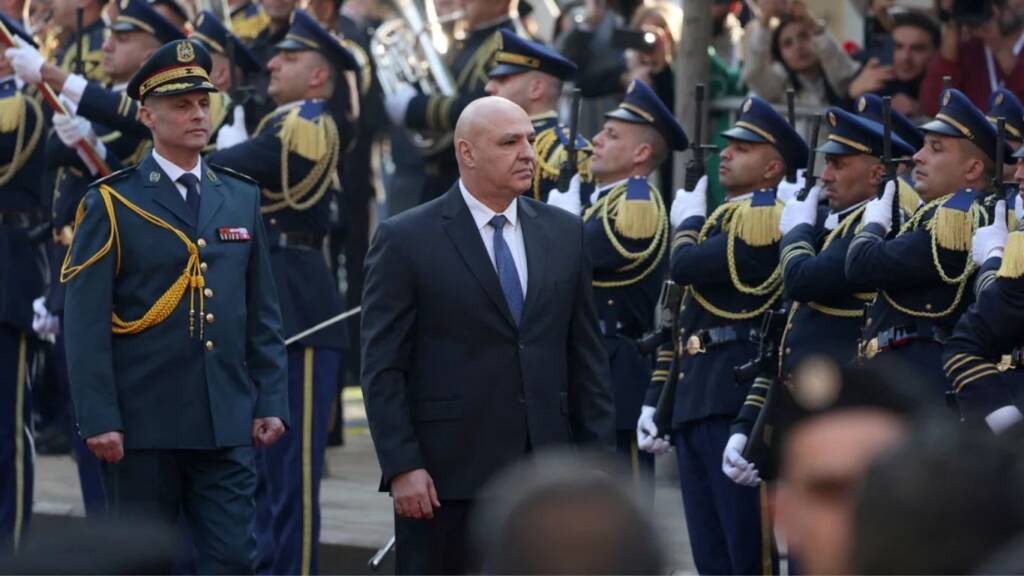Lebanon is undergoing a complete turmoil, as its new President, Joseph Aoun, is looking to stabalize the volatile political situation in the country. Aoun has been meeting with lawmakers on Monday to choose the next prime minister of Lebanon. Aoun himself was recently elected as the President of the country marking a huge change in Lebanon’s politics.
Joseph Aoun is Lebanon’s army chief and has received strong support from the US and Saudi Arabia, which signals their growing influence in the country. US President Joe Biden has also praised Aoun’s election, calling it a step toward peace, security, and rebuilding.
Aoun’s election ends a two year political vacuum. And now he will be in the unenviable position where he grapples with the country’s dire financial situation, its divisive social and political problems as well as dealing with the ongoing Israel and Hezbollah war that threatens to pull apart the entire nation.
In his speech, Aoun promised a “new era” for Lebanon. He expressed a desire to bring all weapons under state control, hinting at Hezbollah. He also suggested that Lebanon could defend itself against Israel without relying on Hezbollah, which has traditionally handled such confrontations.
Lebanon’s political system is extremely complex, it requires the President to be a Maronite Christian and the Prime Minister to be a Sunni Muslim, ensuring power is shared between the country’s religious groups. Aoun’s election ended a presidential vacuum that had lasted since October 2022, after the previous President left office. It took 13 attempts over two years to elect a new president, showing how divided the country currently is.
Political situation of Lebanon
The election of a new president and prime minister comes at a crucial time for the Middle East, as a new Syrian government under HTS chief Al Julani takes over after the fall of the Assad regime and amid a ceasefire between Iran-backed militant group Hezbollah and Israel.
Lebanon’s international backers, including the United States, had reportedly suggested financial support for a postwar rebuild in Lebanon is dependent on the election of a new president. The World Bank estimates that the Israel-Hezbollah conflict has cost Lebanon $8.5 billion in damages.
During the previous President, Michael Aoun’s six years in power, the militant outfit Hezbollah had considerable influence as a political force in the region which has since been considerably weakened by a 14-month war with Israel. Lebanon’s Parliament had failed in 12 previous attempts to elect a successor. However, foreign policy experts believe that Lebanese lawmakers may have felt pressure to elect a U.S.-supported president due to its need for financial support from international partners.
The new president Jospeh Aoun oversaw Lebanon’s armed forces, which saw backing from the United States. Aoun is also reportedly widely respected across the country. The freshly elected president also does not have a close relationship with Hezbollah, which his predecessor worked with when they were a more powerful political force in the country. This also certifies the strong western effect on the nation, as Lebanon seeks to delink itself from Hezbollah and the raging clashes in its neighbourhood.
Two main candidates are in the running: the current Prime Minister Najib Mikati, a billionaire businessman who has held the job four times, and Nawaf Salam, the president of the International Court of Justice and former UN ambassador. This decision is crucial for Lebanon’s political future after the last week of Aoun’s presidential election. Mikati has the support of Hezbollah and its ally, the Amal Movement, while anti-Hezbollah groups like the Lebanese Forces back Salam.
The US and its allies in the region might try to influence the election the way they did during the presidential election. Choosing a new prime minister is crucial to ending Lebanon’s political deadlock, as the country has been without strong leadership for over two years. The new government will face serious challenges, including rebuilding areas destroyed by last year’s war with Hezbollah and fixing Lebanon’s collapsed financial system.
These political changes follow important regional events that weakened Hezbollah’s position. The group suffered heavy losses in its war with Israel last fall, and its ally, Syrian President Bashar al-Assad, was ousted in December. A US-brokered ceasefire now requires Hezbollah to pull back from the Israeli border, while Israeli forces must leave Lebanese territory by the end of January.
